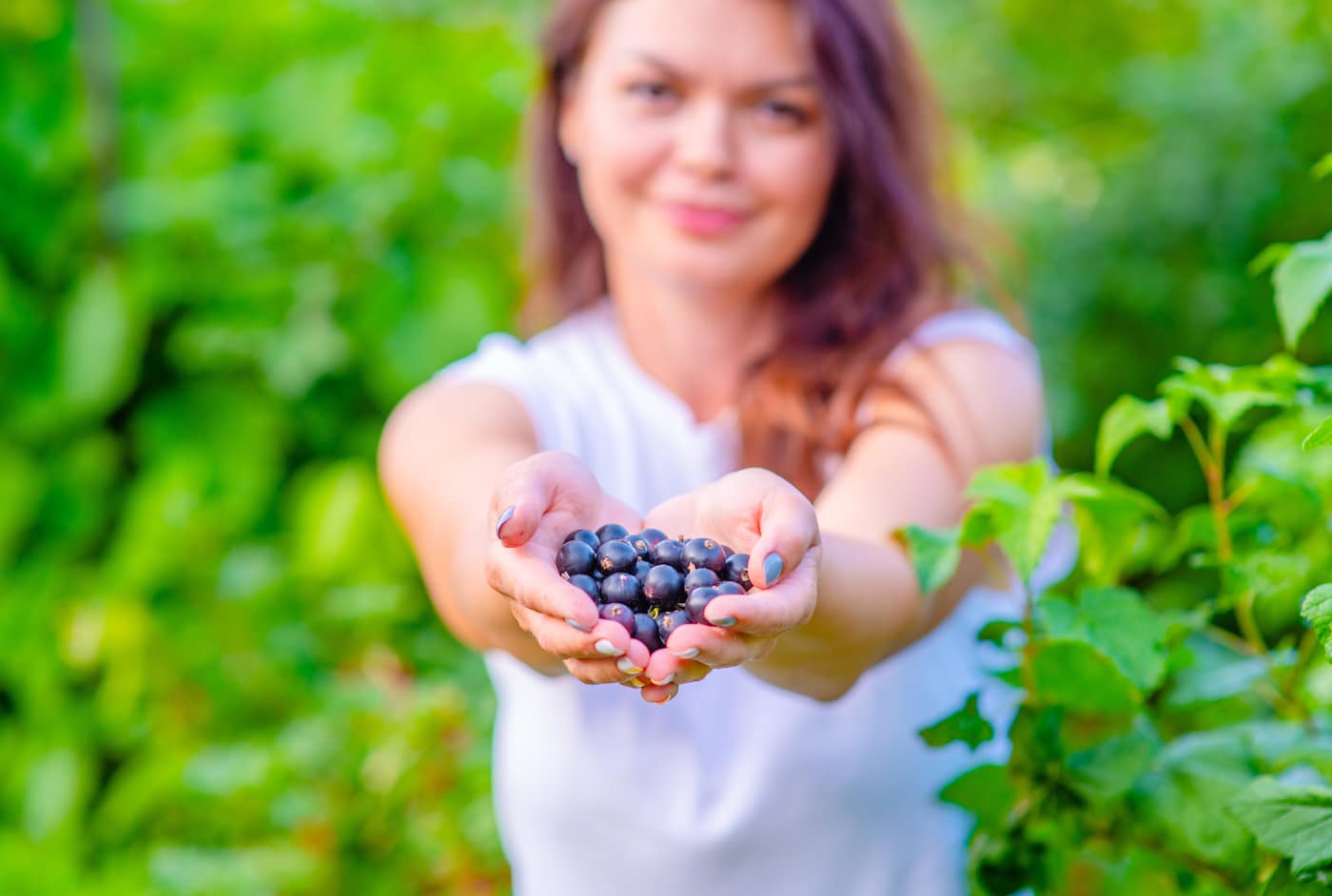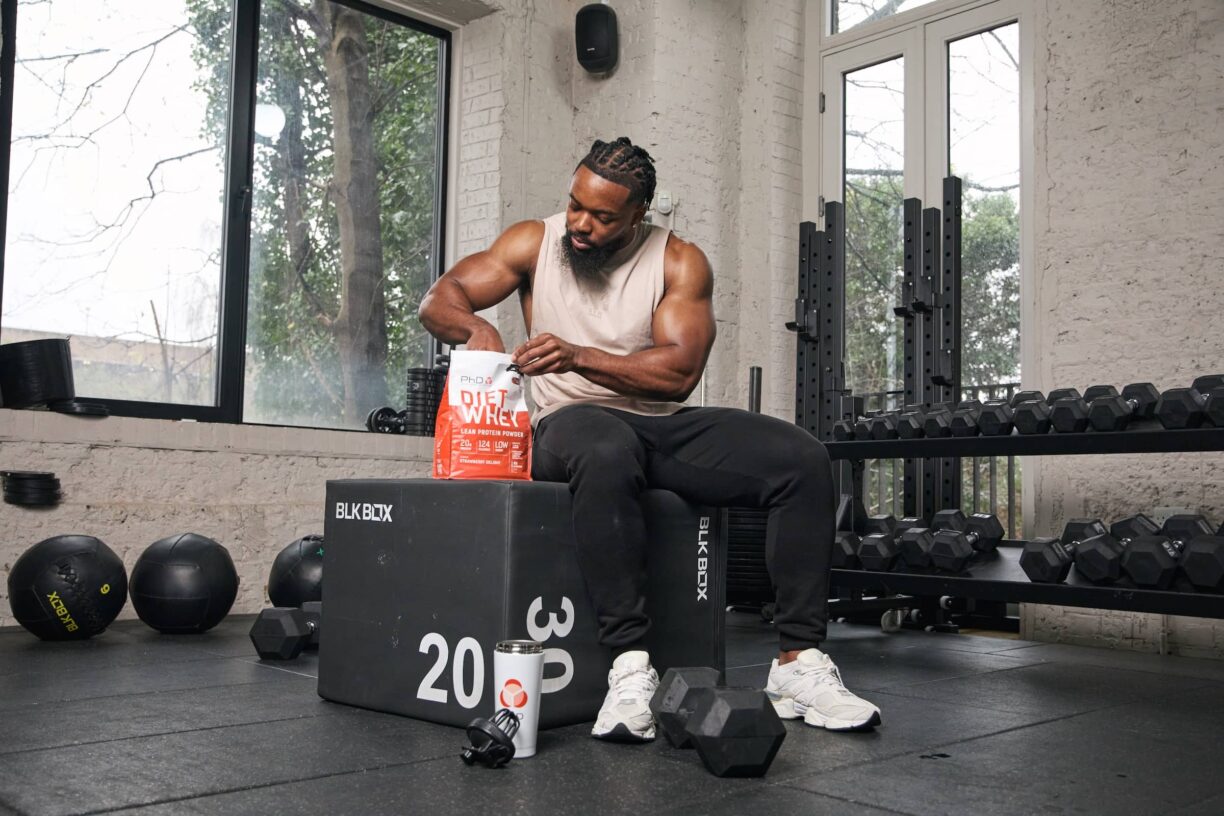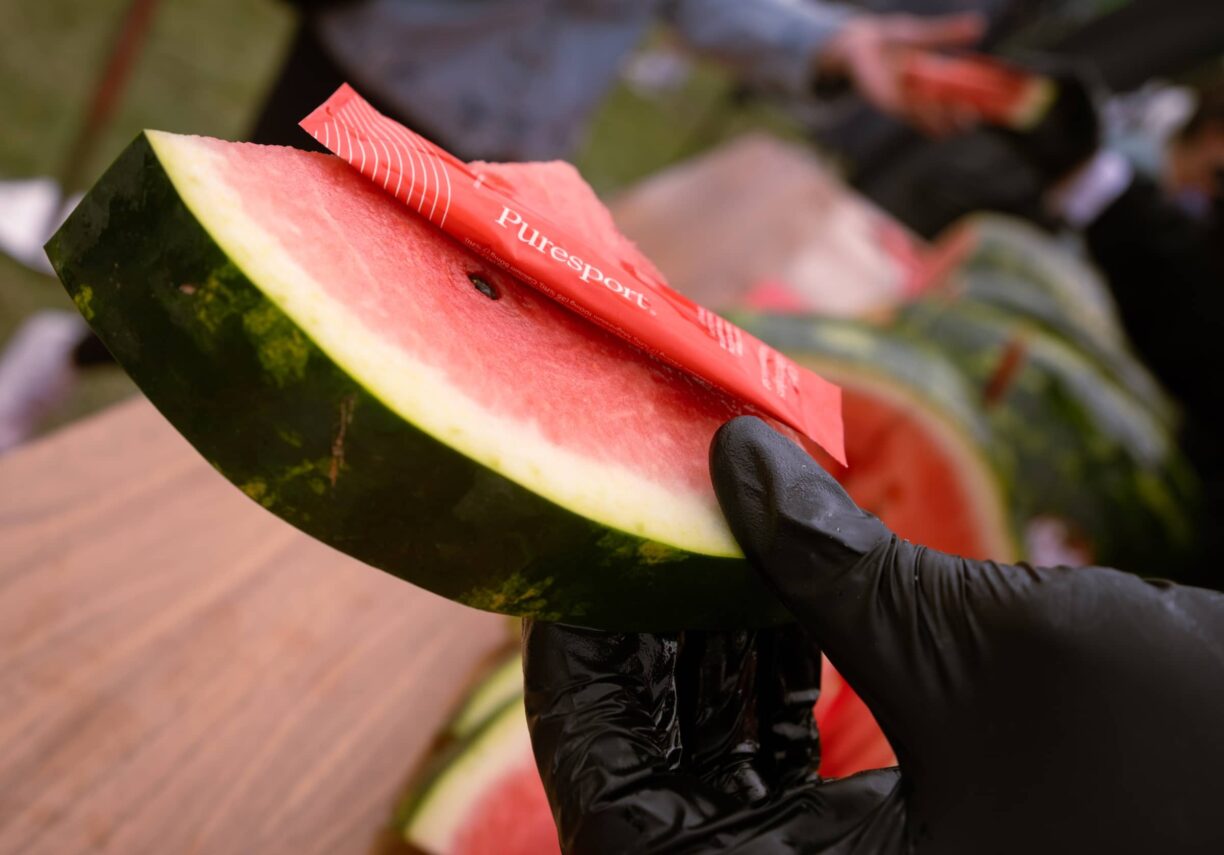With heart and circulatory disease the cause of a quarter of all deaths in the UK and claiming 160,000 lives annually, we took a look at how we can reduce our risks and improve heart health naturally through diet.
With 7.6 million Brits living with heart or circulatory disease, experts are now identifying and recommending specific foods that may offer fast-acting benefits for long-term health wins.
Regular exercise, reducing stress levels, and eating lots of fruit and vegetables, especially dark ‘purple’ berry fruits, are all important when it comes to heart health wellness and prevention.
New data is showing that as a nation we should be upping our dietary levels of polyphenolic compounds called anthocyanins.
These ‘high value’ heart-healthy bioactives are plant compounds with strong protective effects and could be a simple and cost-effective way of reducing the risk of cardiovascular-associated mortality.
Recent investigations involving almost 60,000 adults in Europe and the US highlight the important role of anthocyanins for cardiac protection, yet despite this, no guidelines exist for recommended intake.
As biological response modifiers, anthocyanins (pronounced anth-o-sy-an-ins) are one of the most important sources of bioactive compounds in the human diet with a spectrum of lifespan-essential health-protecting benefits.
Anthocyanins are the colour pigments in fruit and vegetables and protect plants against pests, UV light, and disease, with the highest concentrations found in berries.
Researchers now regard them as being an essential part of dietary heart health strategies.
Blackcurrants offer one of the richest sources of these bioactives, with the highest density of any berry fruit.
British research is showing the fast-acting and clinically-significant impact these ‘super berries’ can have on cardiovascular health.
Like any healthy habit, regular consumption is the smart way to help future-proof your health – and it’s never too late to start.
Here are four ways that anthocyanins can help keep your heart healthy and active throughout your life.
- Boosting blood flow is the secret to a longer life
Healthy circulation is the key to longevity and essential for the function of vital organs, keeping the brain sharp, and enjoying an active lifestyle.
For the last decade, anthocyanins have been the subject of intense international academic interest, and in the UK, the University of Chichester has made major breakthroughs to reveal the moderate-to-large changes that blackcurrants can have on cardiovascular function and health.
Their work has unlocked important discoveries, with their latest projects revealing that the New Zealand blackcurrant extract supplement, CurraNZ, increases main arterial blood flow during muscle contraction up to 45%, cardiac output 27%, and reduces blood pressure in hypertensive adults, with clinically-significant changes after just four-to-seven days.
Excitingly, short-term consumption triggers significant changes to whole-body circulation.
Blackcurrant anthocyanins widen the arteries, increasing the amount of blood pumped and circulated by the heart to muscles, tissues, and vital organs.
Mark Willems, Professor of Exercise Physiology who has been investigating New Zealand blackcurrant anthocyanins for performance and health since 2013, believes “we are just scratching the surface on the meaningful potential of anthocyanins to affect health across the lifespan it seems”.
- Reversing arterial stiffness – a hallmark of ageing and dysfunction
Arteries provide the body’s ‘superhighway’ for blood flow and become stiff and congested with the normal consequences of ageing.
These alterations impair blood flow and frequently occur with the development of cardiovascular disease. Arterial stiffness is also a predictor of coronary events.
The possible role of anthocyanins in preventing the hardening of the arteries came into sharp focus last year when it was found that compounds in blackcurrants were estimated to reverse the consequences of ageing by ten years after only seven days’ intake of extract.
The study in older adults found that daily consumption of berry compounds improved the function of the whole-body blood vessel and arterial function to a clinically-relevant degree and confirmed an earlier study that it could reduce mortality risk factors by 20%.
Professor Willems, who collaborated in the study, says: “Somehow blackcurrant compounds are making blood vessels healthier and younger.
“It is an important finding that the ease of intake of blackcurrant extract can act as preventive medicine to provide beneficial effects on our blood vessels.”
- Blood pressure
High blood pressure is regarded as the ‘silent killer’ and affects one in four adults globally.
High blood pressure, described as ‘hypertension, increases the risk of heart failure, coronary artery disease, stroke, peripheral arterial disease and vascular dementia.
The role of anthocyanins in helping normalise blood pressure in adults with cardiovascular defects is another compelling reason to include in your diet if you have hypertension.
Studies show as little as a week’s intake can provide clinically relevant improvements to helping reduce high blood pressure.
According to Professor Willems, blackcurrant anthocyanins only target defects in the cardiovascular system that cause high blood pressure.
He says: “We see in studies that blackcurrant has little effect on people with normal blood pressure.
However, in hypertensive adults, the berry is targeting something that is causing high blood pressure. But, if there’s no defect in the system, there’s less for blackcurrant to go after.
“However, the best strategy is not to wait until developing high blood pressure and blackcurrant can help with prevention by supporting healthy cardiovascular function.”
- Anthocyanins make exercising easier
Being active is central to good health, but undertaking exercise is more difficult if you’re overweight, unfit, or have reduced cardiovascular function.
Plus, if you have poor circulation, you’ll experience higher fatigue and tire more quickly as exertion places great stress on the cardiovascular system.
Blackcurrant’s ‘relaxing’ effect on blood vessels has been shown to make brisk walking exercise a more comfortable experience because additional blood supply means muscles don’t have to work so hard.
The boost to oxygen delivery means anyone undertaking exercise can better cope with fatigue, making it easier for the body to deal with strenuous activity.
How many anthocyanins should we be consuming?
Professor Willems believes that while there are no guidelines for anthocyanin intake, the evidence is building that we need to eat more fruit, especially berries and vegetables rich in these compounds, or supplement with high-value functional foods, through fortification or taking anthocyanin supplements.
He says: “We fortify animal feeds with these functional food components and the same could be done with food for human consumption to affect human health.”
“As well as the general population, we should also be educating young people that intake of colourful fruit and vegetables is a good thing for a long and healthy life.”
Adding two ‘purple’ foods a day, ie two handfuls of dark-colored berries, on top of our ‘five a day is a good starting point – and regardless of your age, it’s never too late to include more anthocyanins into the diet.





